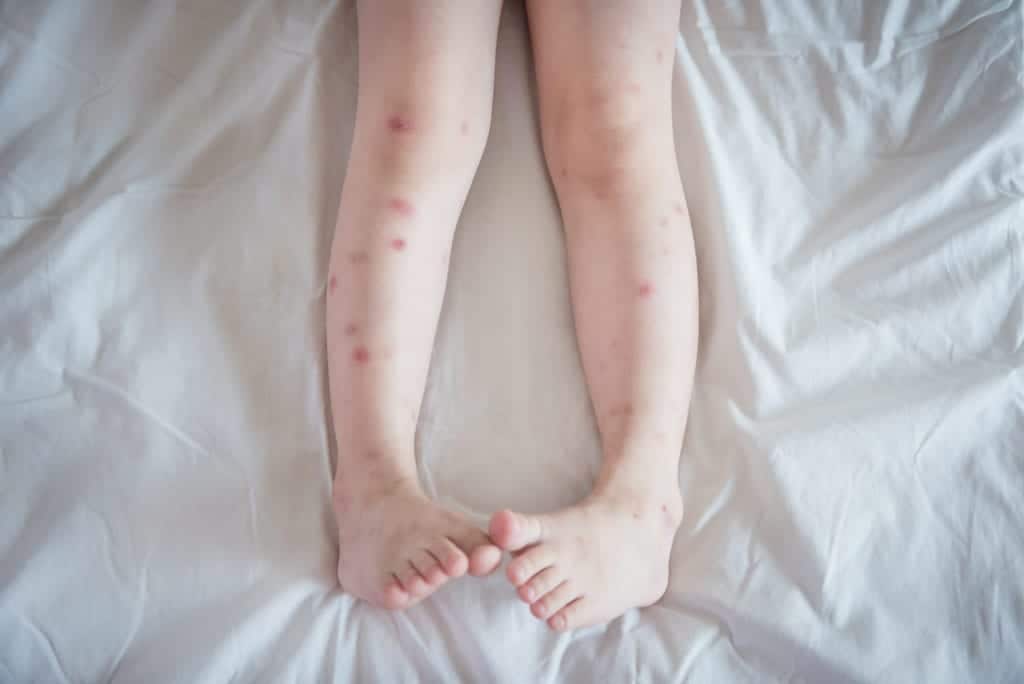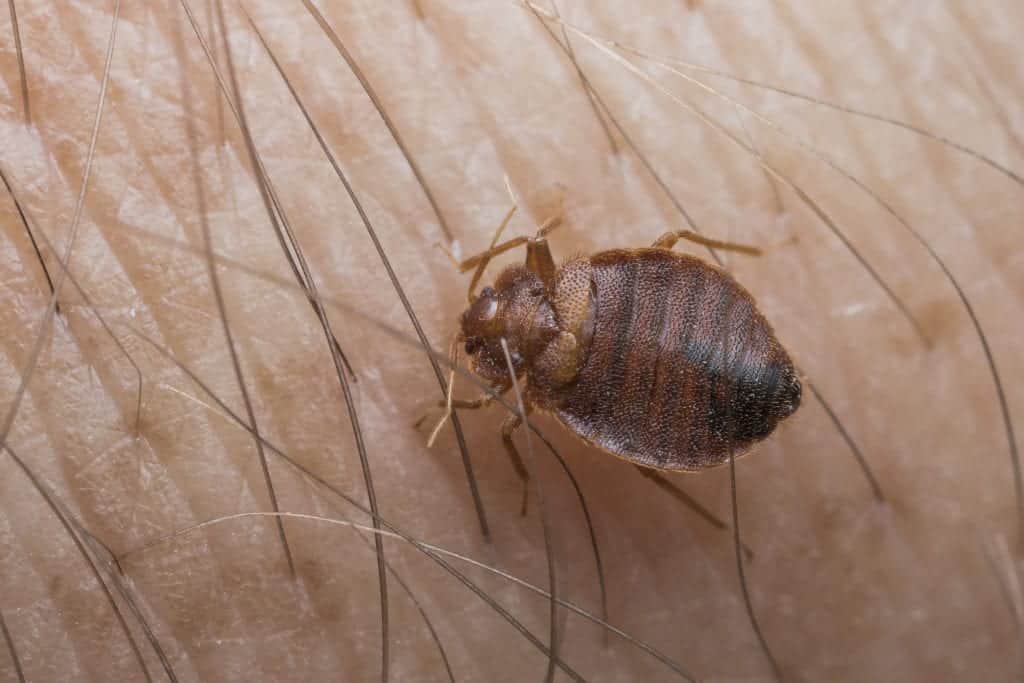New Research Shows Bed Bugs Bites Might Be Deadly
New Research Shows Bed Bugs Bites Might Be Deadly
Bed Bug Bites
Unfortunately, a lot of bug bites look very similar, so it can sometimes be difficult to identify one from the other. Bed bugs leave behind itchy red spots, similar to mosquito and flew bites. However, a rather defining factor that can help identify bed bug bites from the bites of other insects, is that they’re often found in clusters or arranged in a linear pattern. This is due to the tendency of bed bugs to bite, walk a tad, bite again, walk a bit more, and so forth. In some cases, you may notice a small dark spot at the center of the bites and after some time, some of the bites may develop into small blisters. Bed bugs also tend to target exposed skin, so they are far more likely to bite exposed limbs such as feet, ankles, arms, neck, etc. Thankfully, bed bug bites will usually disappear on their own within a week or two. However, they can be maddeningly uncomfortable in the meantime. Just like with mosquito bites, the level of irritation that the bites can cause is typically dependent on the individual and some individuals are lucky enough to have even no reaction whatsoever. The bites are itchy and can even create a bit of a burning sensation which can be extremely annoying. 
Bite Reactions
Most external parasitic insects (such as mosquitos, fleas, and ticks) carry and transmit dangerous diseases from person to person. However, extensive research has shown that it is incredibly difficult, if not impossible for bed bugs to transmit diseases from person to person. This is because their digestive systems are miraculously able to breakdown diseases – sometimes as rapidly as within a single hour. Due to this, and since bed bugs very rarely, if ever, bite more than one person within a single night, this makes it practically impossible for bed bugs to transmit diseases. In rare cases however, people may experience adverse reactions to the bites including:
- Blisters
- Swollen tongue
- Fever
- Nausea
- Large red sores or hives
These are typically signs of allergic reactions and if such symptoms occur, it is advisable to seek immediate medical attention. However, new research has shown that such reactions can begin to occur after receiving repeated bites from bed bugs even if the victim did not have such reactions to begin with. Along with the aforementioned symptoms indicative of a negative reaction to the bites, patients have also experienced other systemic reactions. Systemic reactions begin in a localized region before spreading throughout the body affecting different organs and systems. Some of these reactions include:
- Lethargy
- Profuse sweating
- Chest tightness
- Respiratory strain or distress
- Irregular heartbeat
- Asthma attack
- Pruritis (severe itching of the skin)
- Anaphylaxis
In all of these cases, immediate intervention by medical professional is necessary as they will be able to both make a proper diagnosis and determine the best way to treat and relieve the condition. 
Potentially Deadly
There are several concerns with these new findings. Most pressing is the discovery that, while rare, some cases of repeated bites from bed bugs, especially in the case of an allergy, could potentially be deadly. Cases where victims have been bit over months and even years develop reactions that are progressively more severe with subsequent bites, making the chance of a potentially fatal reaction significantly higher. This fact becomes even more concerning when considering that bed bugs have become increasingly resistant to pesticides and, as such, there has been a significant surge in bed bug infestations. A pesticide known as DDT was once widely used to combat the vampiric bedtime pests and even nearly eradicated them. But, starting in the late 1990’s bed bugs reemerged. DDT had been declared a dangerous pesticide and, as such, it had been discontinued. Nowadays, one fifth of Americans either knows someone who has dealt with bedbugs or has had a bedbug invasion in their own home – making it the most prevalent spreading infestation in the United States today. These discoveries mean that medical professionals may start seeing an increase in patients seeking treatment for bed bug bites as well as an increased necessity for pest control companies to work on eradicating bed bug populations. 
Citations
Bed Bugs FAQs (2020) Centers for Disease Control and Prevention. The Global Health Division of Parasitic Diseases and Malaria. Available at: https://www.cdc.gov/parasites/bedbugs/faqs.html (Accessed: September 2020). Brouhard, R. (2020) Systemic Reaction Through the Body, Verywell Health. Edited by M. Menna. Available at: https://www.verywellhealth.com/systemic-reaction-1298693 (Accessed: November 2020). Holland, K. (2019) Everything You Need to Know About Bed Bug Bites, Healthline. Medically reviewed and edited by C. Cobb, DNP, APRN, WHNP-BC. Available at: https://www.healthline.com/health/bed-bug-bites#pets (Accessed: September 2020). Huizen, J. (2020) Bed Bug Bites: What You Need to Know, Medical News Today. Medically reviewed and edited by D. Sullivan, Ph. D., MSN, R.N., CNE, COI. Healthline Media. Available at: https://www.medicalnewstoday.com/articles/318083#control (Accessed: September 2020). Mayo Clinic Staff (2019) Bedbugs, Mayo Clinic. The Mayo Foundation for Medical Education and Research. Available at: https://www.mayoclinic.org/diseases-conditions/bedbugs/symptoms-causes/syc-20370001 (Accessed: September 2020). Study: Bites Can Induce Potentially Deadly Systemic Reactions (2017) Pest Control Technology. Available at: https://www.pctonline.com/article/study-bites-can-induce-potentially-deadly-systemic-reactions/ (Accessed: November 2020).
Request a Free Quote Today
(We do not share your data with anybody, and only use it for its intended purpose)


